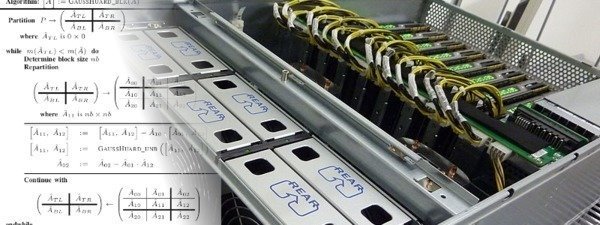
ANII-MPS Partner Group
Efficient Heterogeneous Computing - Efficient Computational Methods for Numerical Linear Algebra on Heterogeneous Architectures
The Max Planck Institutes conduct research worldwide in a network of international collaborations and projects in order to increase scientific performance and productivity and create scientific added value. Since January 2018, the Max Planck Institute for Dynamics of Complex Technical Systems Magdeburg has been intensifying its cooperation with the Universidad de la República Uruguay (UdelaR) in Montevideo within the framework of a partner group.
"Trabajar con el grupo me permitió formarme e intercambiar con investigadores de primer nivel y amplia experiencia, así como de conocer su enfoque hacia la investigación. Esto es de mucho valor para mí, ya que me encuentro aún en una etapa inicial de mi carrera. Diría que el trabajo en conjunto con investigadores alemanes es especialmente metódico y me ha aportado mucho en ese sentido. ..." Ernesto Dufrechou
The project investigates the use of different hardware platforms (traditional multicore processors, ARM processors, graphics cards, etc.) for the efficient implementation of numerical linear algebra (NLA) algorithms. The efficiency evaluation is complex, i.e. it takes into account traditional aspects such as execution time, but also others that have become important in recent years, such as energy consumption and the associated economic costs. The interest in this topic is based on the fact that a large number of tasks of numerical simulation in the natural sciences, engineering and economics basically rely thousands or even millions of times on basic NLA operations. Therefore, the improvements achieved in the project can have a direct impact on a large number of scenarios. The joint work complements the capabilities of both teams in a natural way. The CSC group has a long history in addressing NLA problems from theory to implementation, while the EHC group has been studying the use of heterogeneous hardware for NLA operations for more than a decade.
Publications since 2018